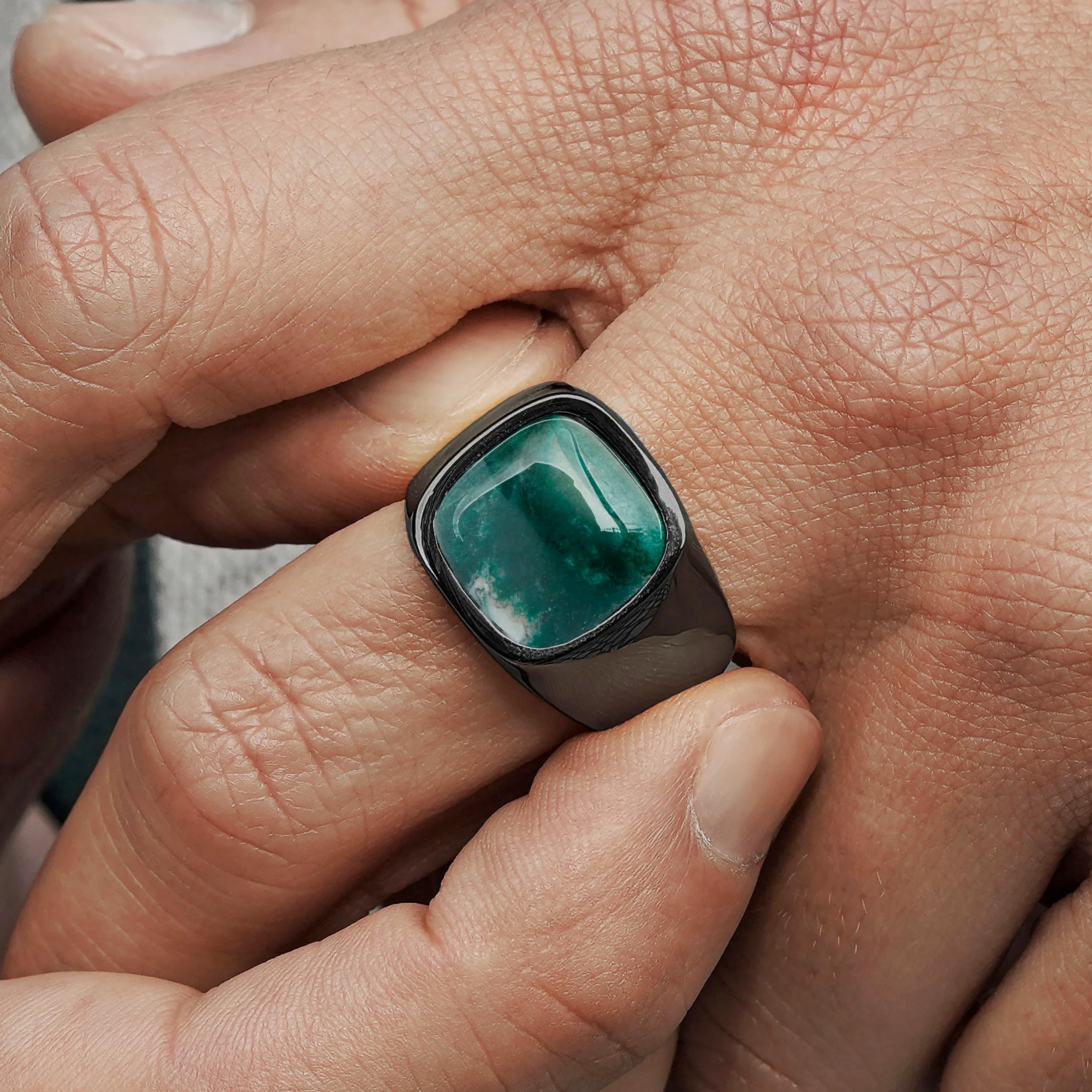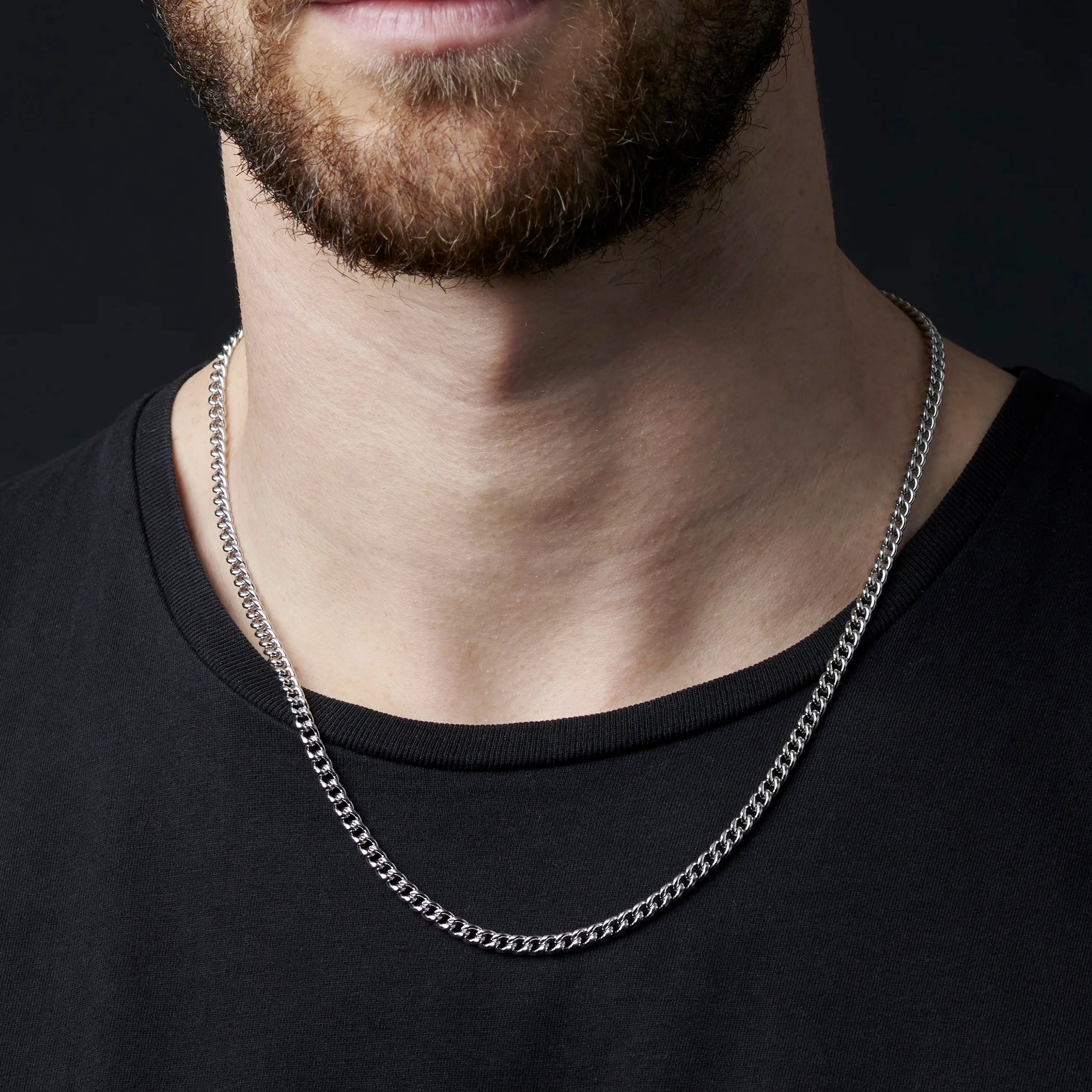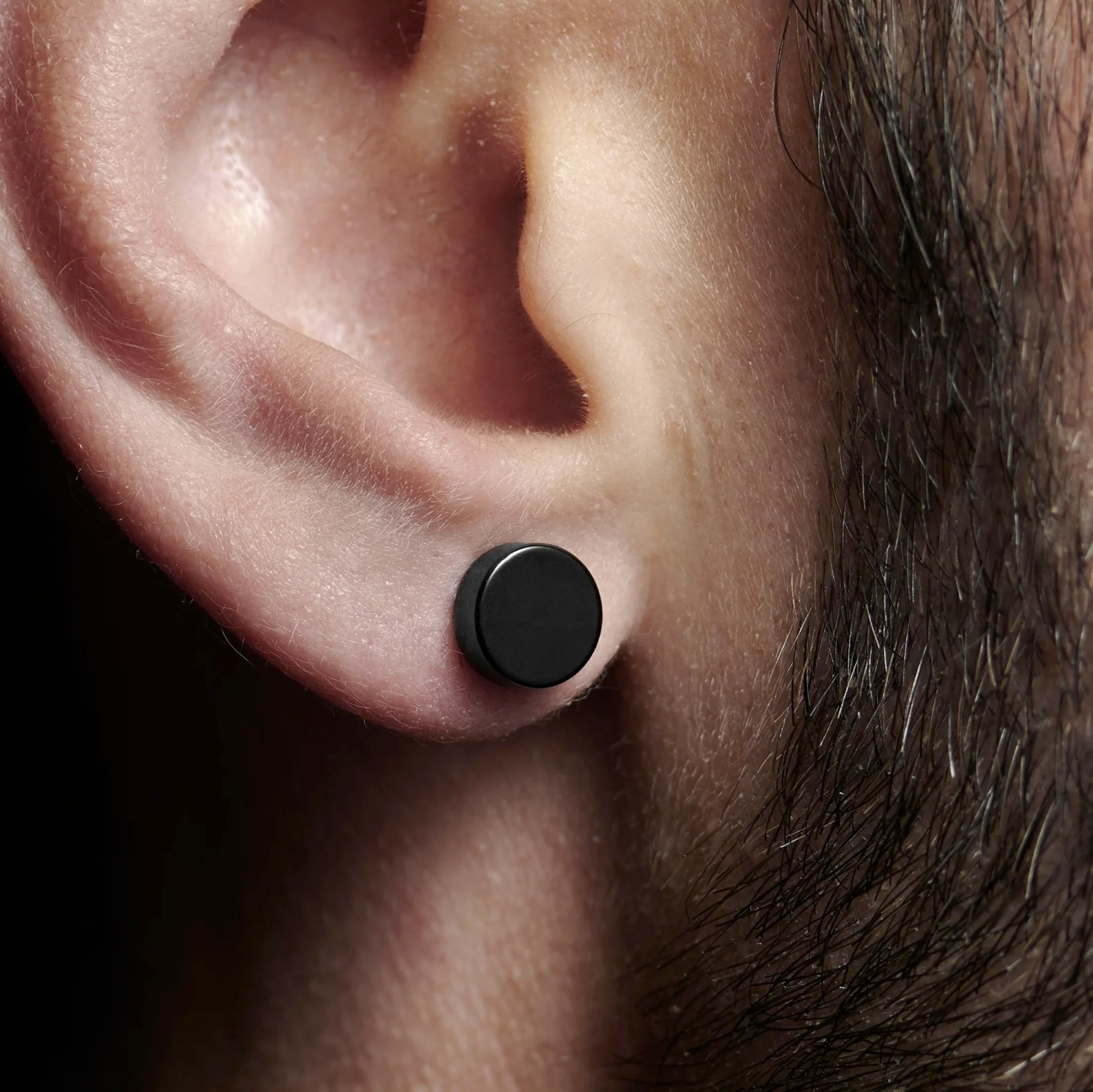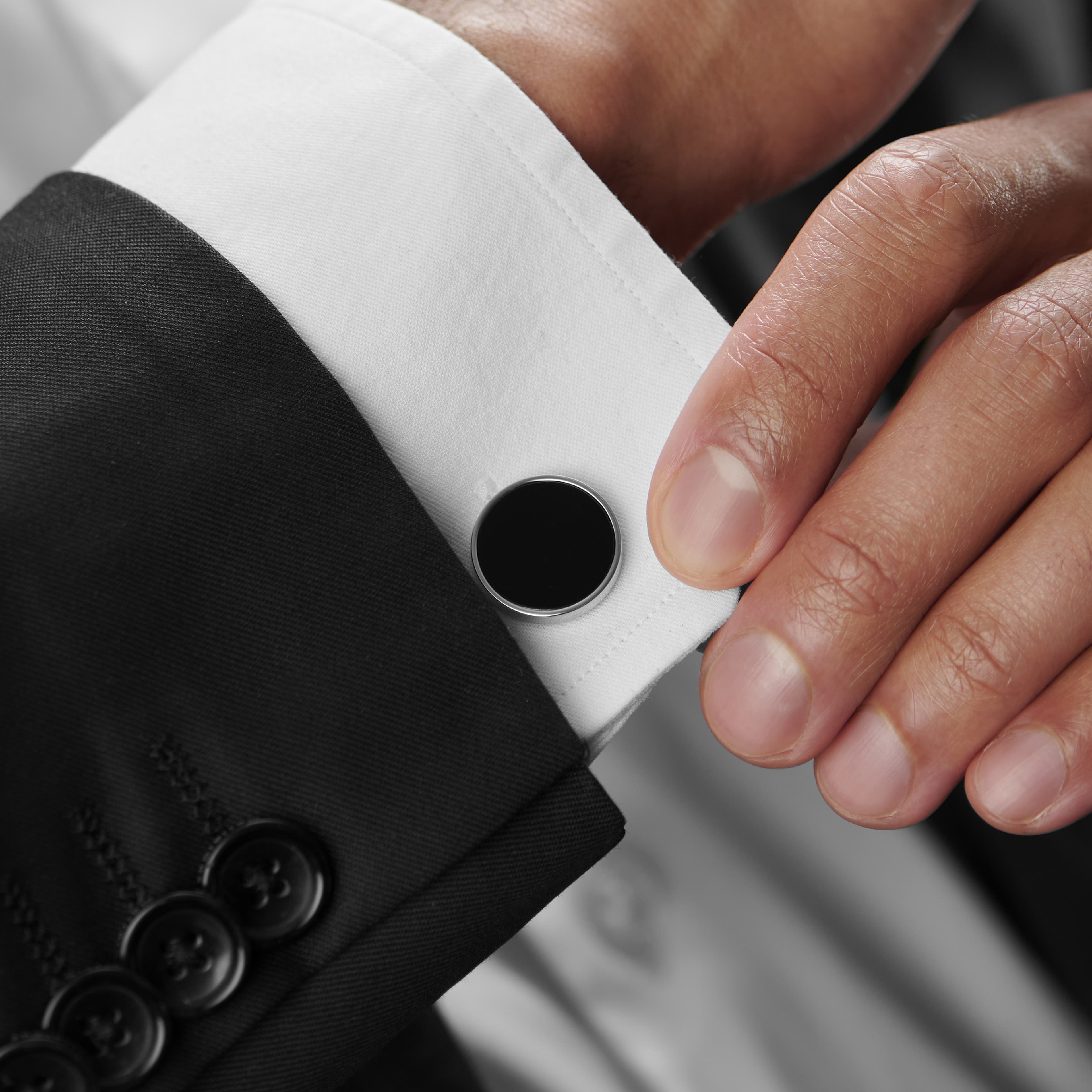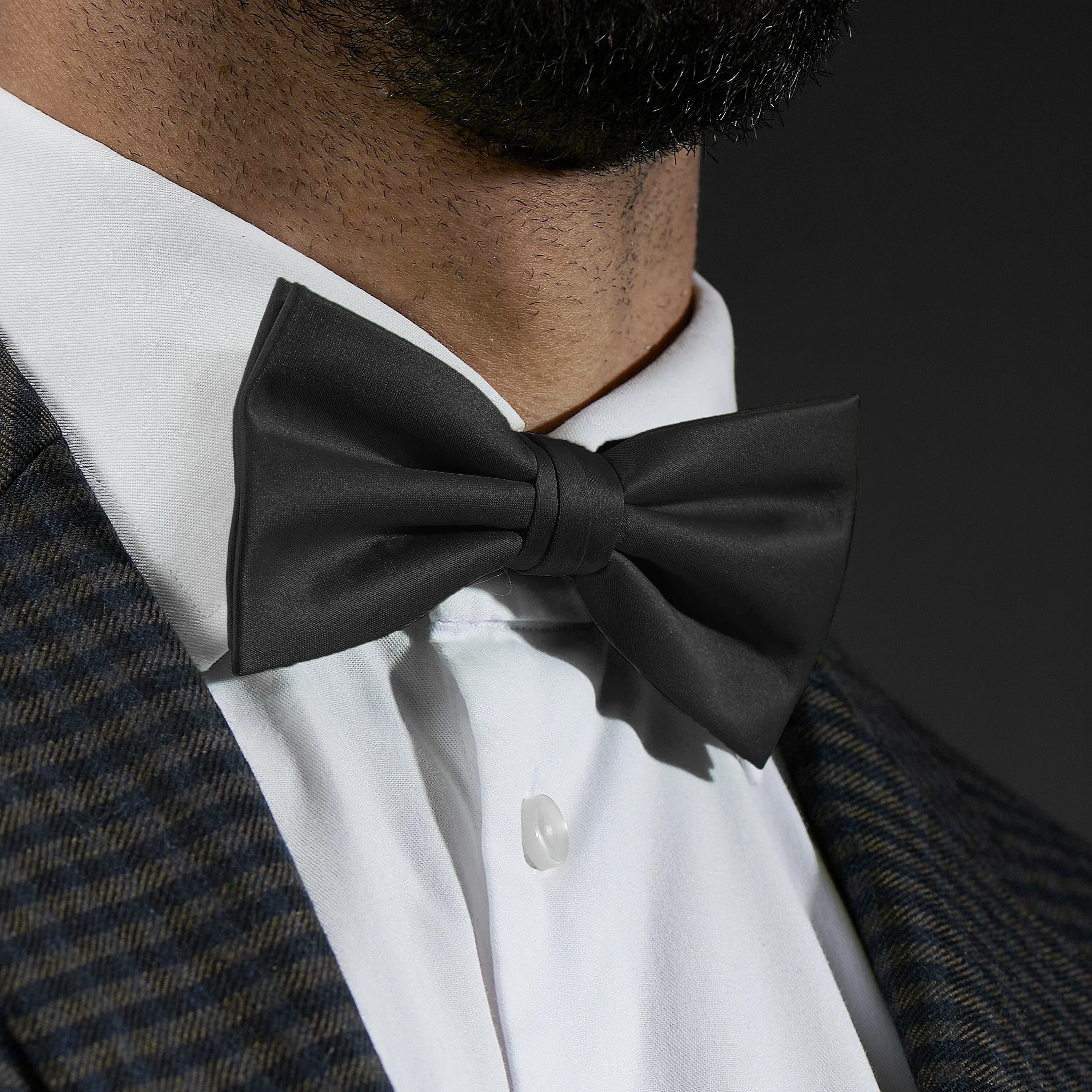
MANUAL DE INSTRUCCIONES DE LA SERIE TERNION
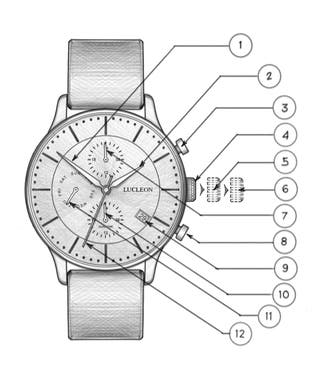
Instrucciones
- Minutero
- Manecilla de la hora
- Botón A
- Corona
- Corona - Primer chasquido
- Corona - Segundo chasquido
- Manecilla de 24 horas
- Botón B
- Visor de la fecha
- Manecilla de 24 horas del segundo huso horario
- Indicador del día de la semana
- Segundero
Fijación de la fecha: Mueve la corona a la posición 5 y gírala.
Fijación de la hora Mueve la corona a la posición 6 y gírala.
Fijación de la hora para la esfera de 24 horas: Mueve la corona a la posición 6 y gírala.
Fijación del día de la semana: Mueve la corona a la posición 6 y gírala. Si la manecilla de la hora se adelanta 24 horas, el día de la semana cambiará.
Fijación del huso horario (válido para diferentes franjas horarias): Mueve la manecilla en incrementos de 15 minutos usando el botón A para ir hacia delante y el B para ir hacia atrás.
Características
- Movimiento: Cuarzo Miyota JP15
- Resistencia al agua: 3 ATM/30 metros
- Funciones: Fecha, múltiples zonas horarias, formato de 24 horas, día de la semana
- Pila: Sony SR621SW
- Cristal: Vidrio mineral
- Material de la caja: Acero inoxidable
- Material de la correa: Cuero auténtico
- Sin níquel: Sí
- Tamaño máximo de la muñeca: 19,5 cm
- Tamaño mínimo de la muñeca: 14,5 cm
- Ancho de la correa: 20 mm
- Diámetro de la caja: 40 mm
- Diámetro de la esfera: 37 mm
- Grosor de la caja: 10 mm
- Altura de la corona: 3 mm
- Ancho de oreja: 20 mm
- Ancho de oreja a oreja: 45 mm
- Peso: 50 g
CÓMO CUIDAR TU RELOJ
WATER RESISTANCE
Most watches have some level of water resistance. If your watch isn’t water resistant, it may be able to handle small splashes, but don’t risk it. If it has a leather band, don’t get it wet.

1 ATM/10 metros Este reloj no puede soportar ningún tipo de contacto con el agua.

3 ATM/30 metros Este reloj puede soportar la lluvia y salpicaduras de agua sin problemas.

5 ATM/50 metros Este reloj se puede usar para actividades como ducharse o nadar.

10 ATM/100 metros Este reloj tiene la suficiente resistencia al agua como para practicar esnórquel.

Más de 20 ATM/más de 200 metros Este reloj es seguro para la práctica de cualquier actividad acuática, como el submarinismo.
How to clean your watch case
- Do not move the crown or push any buttons when your watch is in contact with water, as this may let water enter the case.
- If your watch is not water resistant, dip a cotton swab in a bowl of warm water with a drop or two of soap in. Squeeze the tip of the cotton swab to remove most of the water and gently rub the case.
- If your watch is water resistant, soak a soft cloth in a bowl of warm water with two drops of mild washing-up liquid added. Wring most of the water out of the cloth and gently rub the case with it.
How to clean your leather watch strap
As a rule of thumb, genuine leather shouldn’t get wet. This includes sweat and the moisture that evaporates from your body throughout the day, which is why we recommend you don’t wear your leather-strapped watch every day and always take it off when you go to sleep. 1. If you must clean your leather strap, remove it from the case and rub it down with a clean, dry cloth. 2. Apply leather cleaner and conditioner with a soft cloth, gently massaging the lotion into the leather. 3. Finish by wiping with a clean cloth to prevent staining and let the straps air-dry overnight.
Don’t wear it so tight that you have to bend the strap backwards to unbuckle your watch, as this can permanently deform the leather.
How to care for your watch
- Store your watch in a dark, dry place to avoid corrosion and discolouration of the dial.
- Always replace the battery on a quartz watch as soon as it runs out. With time, an empty battery may start leaking, damaging the watch’s movement.
- Run mechanical watches at least two days a year to prevent gears and cogs from sticking.
- You should always get your watch serviced by a professional every 3 years.
GENERAL CARE
Rule of thumb: Make sure your watch is the last thing you put on and the first thing you take off.
- Take your watch off and store it safely before engaging in any activity that could damage it.
- Take it off before engaging in any activity likely to make you sweat.
- Take it off before you shower, bathe, or go for a swim.
- Take it off before cooking or cleaning.
- Take it off before you go to bed.
- Don’t expose your watch to chemicals such as cologne, sunscreen, perfume, chlorine, hair gel, etc., as these can discolour, stain, or dull surfaces.
- Try to store your watch separately in a soft enclosure to prevent scratching and rubbing.
- If your watch has closures or clasps, close these to prevent tangling.
- Keep your watch stored in a dry, dark place, and avoid heat fluctuation.
Cómo quitar la correa de un reloj y reemplazarla por otra
Para cambiar la correa de tu reloj necesitas:
- El reloj.
- Una correa de repuesto.
- Una superficie suave como un paño, camiseta o alfombrilla de ratón.
También podrías necesitar:
- Una herramienta para pasadores.
- O un objeto afilado y puntiagudo.
CÓMO QUITAR UNA CORREA DE RELOJ
Coloca tu reloj sobre una superficie suave. Eso evitará que se arañe o estropee.
Si tu reloj tiene pasadores de liberación rápida en la correa, empuja la palanca pequeña para sacar la correa.
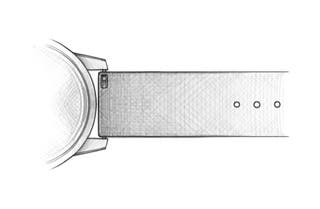
- Si las orejas de tu reloj tienen orificios y hay un pasador, usa un objeto afilado y puntiagudo para empujar el pasador hacia dentro y liberar la corra. Ten cuidado para que el pasador no se salga de la correa y se pierda.
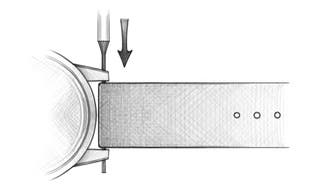
- Si tu reloj no tiene nada de eso, usa una herramienta para pasadores. Se trata de una pequeña herramienta con la punta en forma de V. Sujeta el reloj y coloca el extremo de la herramienta entre una de las asas y el lateral de la correa. Empuja el borde del pasador hacia abajo para liberar la correa.
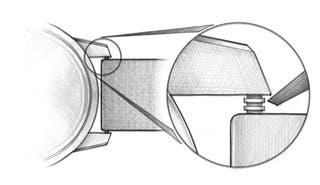
CÓMO REEMPLAZAR LA CORREA DE UN RELOJ
En primer lugar, mide la anchura de oreja de tu reloj nuevo para verificar que tenga un tamaño de 20 mm. Puedes encontrar todas nuestras correas de reloj aquí. Usa los filtros para hacer una selección y ver solo las que encajen con tu reloj.
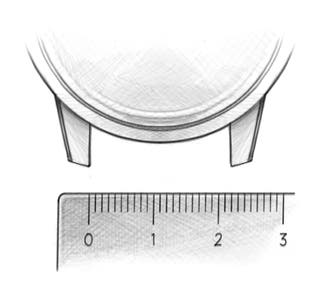
Si tu correa de repuesto tiene pasadores de liberación rápida, empuja la barra hacia dentro y métela entre las orejas. Sentirás como "encaja" en su posición.
Si la correa no tiene pasadores de liberación rápida, usa la herramienta para pasadores otra vez. Coloca el extremo del pasador en su sitio y después comprímelo con la herramienta hasta que esté bien instalado. Sentirás como "encaja" en su posición.
Recuerda que debes tomarte tu tiempo y tener cuidado para no arañar las orejas o dañar la correa nueva.
Troubleshooting & FAQ
If you take care of your watch and keep it stored correctly, you should enjoy years of timekeeping precision. But even with the best care possible, you may find that your watch needs extra attention from time to time.
Take a look at common issues with watches here. If you can’t find what you’re looking for, our great Customer Service Team is only a phone call away.
If your new watch isn’t running, make sure you’ve removed the plastic piece between the crown (the knob on the side) and the case. Remove it and push the crown into its normal position.
Check if you need to replace the battery. Some quartz watch batteries can last up to 3 years, but most batteries are only good for 2. Any local professional can do a battery replacement.
The best way to avoid water getting into the watch case is never to operate the buttons or turn or pull the crown out in wet conditions. Even if your watch is water resistant or waterproof, humidity can get into the case as these parts move. Always make sure to close the crown properly before exposing your watch to water.
If you have droplets forming on the inside of the crystal or the crystal looks foggy, open the crown and place the watch in direct sunlight with the crown facing up and the dial facing the sun. Leave it this way for a few hours. If it’s a quartz watch and it has stopped working, the movement may be damaged beyond repair. Take it to your local professional for diagnosis and repair.
This usually means that a gear inside the watch isn’t working properly even though the electronic part is working. The watch needs to be serviced to get it running again. We recommend a service check from your local professional.
This is fixed by replacing the battery. It’s caused by a feature that indicates when the battery power is low. It’s your watch’s way of telling you that the battery is losing power. Any local professional can do a battery replacement.
Using extra functions (like the chronograph) can shorten the battery’s life. To conserve power, only use these features when you need them.
Opening the watch back unnecessarily can compromise the seal of the watch and its water resistance. We recommend only replacing the battery and opening the watch when necessary. Any local professional can do a battery replacement.
The battery should last for 1-2 years. The actual time depends on how many complications (functions like the alarm and stopwatch) the watch has, how often you use them, and how old the watch is.
Dropping or hitting the display can damage the circuits. Water or even the humidity in the air can also cause corrosion. When this happens, parts of the display will not receive proper voltage and cause the digits to not display correctly. A local professional can replace the display.
This is usually a matter of calibrating the chronograph. Rarely is this a case of the watch being faulty. Manually resetting the chronograph hand to 0 should solve the issue.
This is because the analogue (the hands) and digital components of your watch are built separately. One can malfunction while the other works fine. Seek a local professional’s help for repair.
GARANTÍA DE 2 AÑOS
Para mantener la validez de la garantía, evita exponer el reloj al agua más allá del límite calculado y conserva el recibo de compra.

Otras categorías
¿Pensabas que solo vendemos relojes? Tenemos más de 6.000 productos repartidos en 21 categorías de accesorios para hombres. Aquí tienes algunas de ellas.
